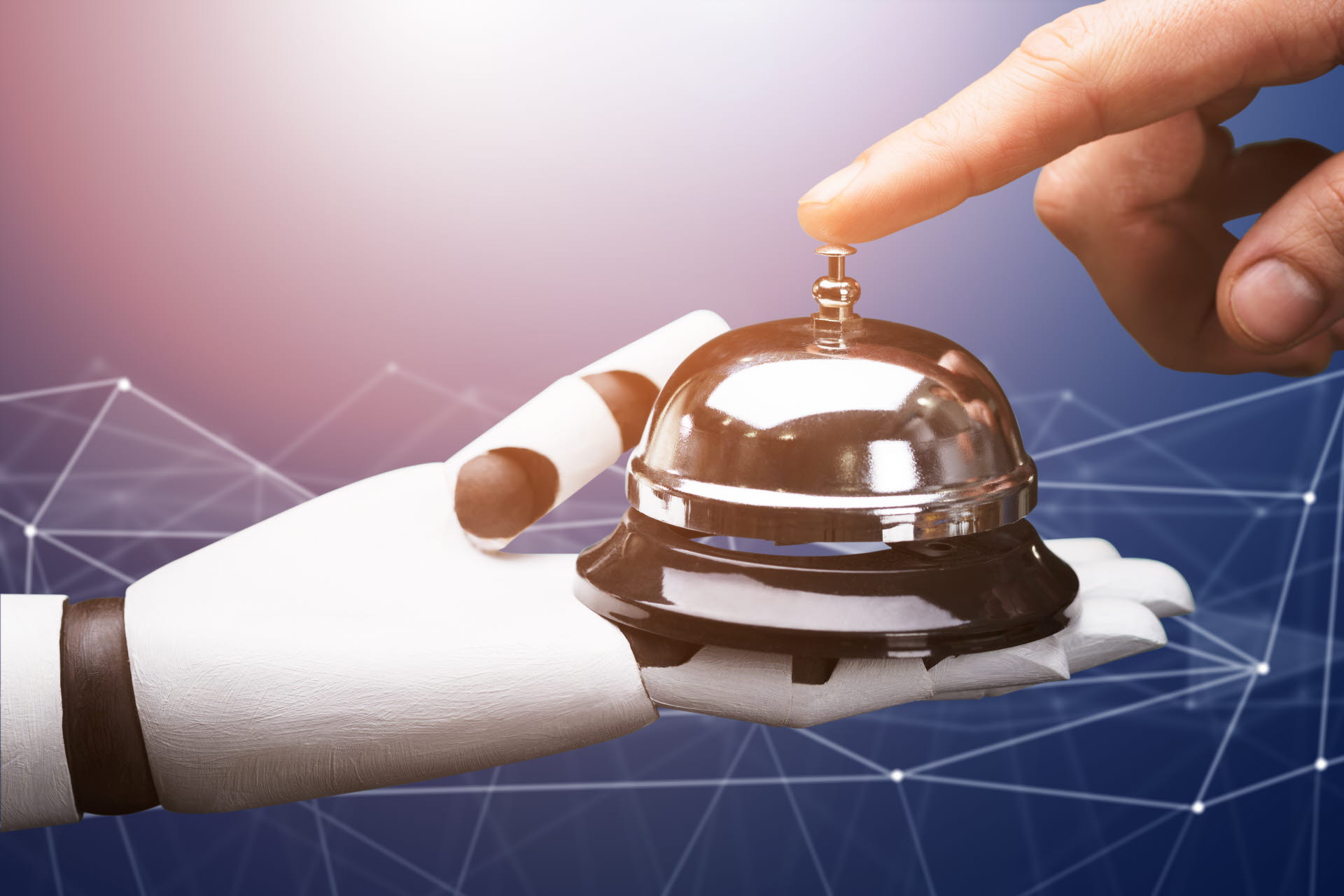AI in Hospitality: Applications, Benefits, and Innovations
By: Scott Hess – Vice President of Information Services, High Company LLC, and David Aungst – President, High Hotels Ltd.
The pace of technological innovation continues to accelerate while providing great promises in what is possible and the challenge to realize those benefits. Artificial intelligence settings, especially Generative AI (GenAI), have gained significant traction across all industries, including AI in the hospitality industry. According to a recent McKinsey Global Survey released in May 2024, “65 percent of respondents now report regular usage of GenAI within their organizations—a remarkable increase compared to our previous survey just ten months ago.”
GenAI provides a lot of power to individuals in completing tasks such as summarizing data (including unstructured survey data), content creation (such as emails and marketing materials), and fostering creativity (such as crafting customer emails). The accessibility of these technologies, facilitated by natural language processing (NLP), enables seamless communication between people and computers and makes them user-friendly for individuals of all backgrounds.

Applications of AI in the Hospitality Industry
In the hospitality industry, AI has provided tangible benefits in certain areas and continues to evolve in others. For instance, energy management systems have been deployed to optimize utility costs through smart thermostats and other technologies. Additionally, chatbots, initially designed for basic question-and-answer interactions, have evolved to offer a more personalized experience. GenAI can now leverage information from large language models (LLMs) based on extensive public data, while also incorporating a user’s prior interactions with the chatbot or personas representing different guest types (e.g., luxury travelers, sightseeing travelers, etc.).
Impact of AI in Hospitality: Labor and Guest Services
Artificial intelligence in the hospitality industry has also been deployed to help address a critical challenge, especially in the wake of the COVID-19 pandemic: hiring and retaining workers who provide essential services such as guest assistance, housekeeping, and food service. Balancing labor costs against occupancy fluctuations adds another layer of complexity.
In 2016, Hilton Hotels introduced Connie—a robot concierge designed to assist guests by providing information about hotel services and local attractions. However, Connie’s novelty quickly faded. More recently, advancements in AI have significantly evolved robotics in hospitality. Robots are now able to deliver room service or meals directly to guests dining in the hotel restaurant. Similar robots are making appearances on college campuses, shuttling coffee or takeout orders from campus eateries to students’ dorms. The AI in these hospitality robots allows them to navigate obstacles and even interact with elevators.
AI and Hotel Room Optimization: Challenges and Innovations
Conference rooms during off-peak hours are more accessible, while guest rooms pose a unique challenge. The traditional furniture layout—with legs and kick panels—makes it difficult for robots to clean these spaces effectively. However, emerging trends, such as floating vanities and toilets, may simplify the process. Still, tasks like cleaning toilets and sinks remain human-dependent.
Read other article in our AI series:
Advantages of Artificial Intelligence in the Hospitality Industry: Revenue Management
Artificial intelligence has been used most extensively and effectively within revenue management. Smith Travel Research defines revenue management as the hospitality industry process of using data and analytics to predict future guest behavior and demand. The objective is to maximize a hotel’s potential revenue.
AI platforms collect and analyze both historical and real-time data to produce pricing recommendations. Two decades ago, people had to manually do what AI in hospitality industry platforms can now accomplish instantly — freeing up managers to make better decisions. Weather forecasts and flight delays help improve models, allowing hotels to optimize staffing and respond to sudden changes in demand.
Ensuring Responsible Use of AI in Hospitality
The seamless interaction between users and AI-generated tools may create the assumption that the answers produced are always correct. While often accurate, businesses must have controls in place to verify responses. The impact of artificial intelligence in hospitality industry operations can be profound, but errors or hallucinated outputs may cause operational or reputational risk. Rigorous validation processes are essential.
Conclusion: Embracing AI in the Hospitality Industry with Caution and Strategy
In summary, while AI tools enhance efficiency and productivity in hospitality, responsible usage demands vigilance. Accuracy and accountability go hand in hand. Organizations must strike a balance between embracing AI’s capabilities and safeguarding against potential pitfalls.
Discover how AI-driven solutions are revolutionizing guest experiences at High Hotels.
FAQs about AI in Hospitality
1. What are the advantages of AI in the hospitality industry?
AI boosts efficiency in areas like customer service, energy management, and revenue optimization. It reduces manual workloads, enhances personalization, and supports labor management during occupancy fluctuations.
2. How is AI currently being used in hospitality?
AI is used in chatbots, smart energy systems, room service robots, personalized guest interactions, and revenue management platforms that adjust pricing based on real-time data.
3. What is the impact of AI on hospitality staffing?
AI helps address labor shortages by automating repetitive tasks and supporting staff with tools like intelligent scheduling, reducing burnout, and improving efficiency.
4. Is artificial intelligence replacing human workers in hospitality?
AI is not replacing humans but augmenting roles. It handles repetitive or data-driven tasks, allowing staff to focus on delivering high-touch guest experiences.
